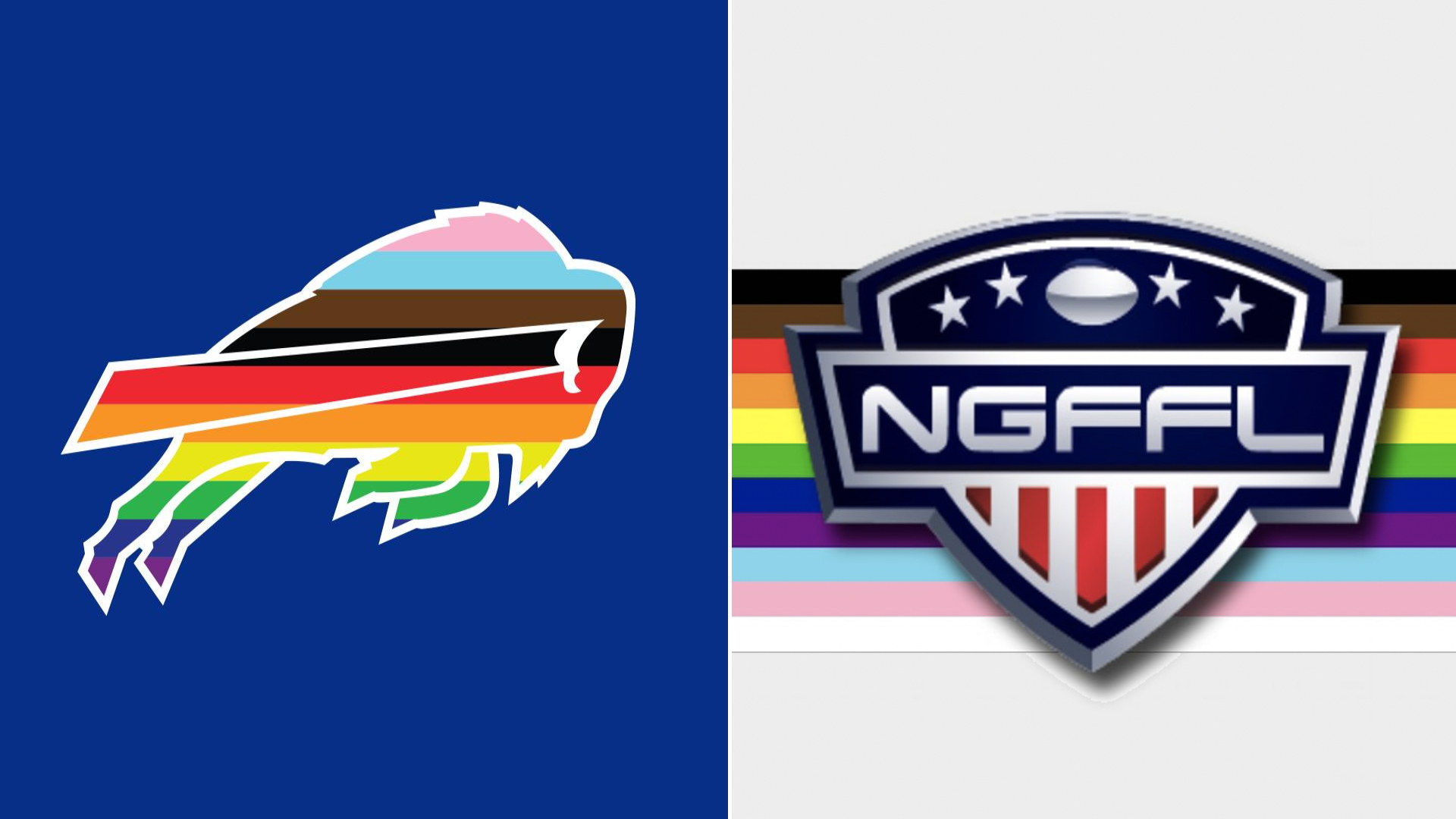The Buffalo Bills are facing a significant financial challenge after publicly backing the newly established National Gay Flag Football League (NGFFL), resulting in an estimated $650 million loss in sponsorships. This move has ignited intense debate, with some praising the team for promoting LGBTQ+ inclusion in sports, while others argue that the Bills have alienated certain parts of their fanbase and corporate partners.
The NGFFL, which launched earlier this year, aims to provide a safe and inclusive space for LGBTQ+ athletes to participate in flag football. The league seeks to create opportunities for LGBTQ+ individuals to compete in sports without fear of discrimination or exclusion. As one of the first major sports teams to publicly support the NGFFL, the Buffalo Bills’ endorsement is seen as a significant step forward for LGBTQ+ visibility in football, a traditionally male-dominated sport.
However, the decision to support the NGFFL has not come without controversy. Several large corporations with long-standing sponsorship deals with the Bills have reportedly decided to cut ties, citing concerns that the team’s public backing of the league could alienate parts of their customer base. These companies, many of which are major national brands, are worried that the Bills’ involvement with the NGFFL may upset fans who oppose LGBTQ+ rights or are uncomfortable with overtly inclusive messaging in sports.
As a result, the team is facing an immediate financial impact, with estimates placing the loss at around $650 million. This figure includes not only direct sponsorships but also merchandise, marketing, and promotional deals. Despite being one of the NFL’s most valuable teams, the Bills are not immune to the complex dynamics of modern sports sponsorships, where fan sentiment and corporate values are increasingly intertwined.
Despite this financial setback, the Buffalo Bills are standing firm in their support for the NGFFL. Team officials have reiterated that inclusivity and diversity are central to the organization’s values, and they view backing the NGFFL as part of their broader commitment to social responsibility. In a statement, the Bills said, “We believe in the power of sports to unite people from all walks of life. Our support for the National Gay Flag Football League reflects our ongoing commitment to creating an environment where everyone feels welcome and respected, both on and off the field.”
The Bills’ position aligns with a larger trend in professional sports, where teams and athletes are increasingly taking public stances on social issues. Over the past few years, many teams across the NFL, NBA, and MLB have embraced diversity and inclusivity, especially in response to movements like Black Lives Matter and growing calls for LGBTQ+ rights in sports.
However, the backlash against the Bills also highlights the challenges that come with navigating the intersection of sports, business, and social issues. The modern sports landscape is no longer just about athletic performance; it also involves addressing the values and expectations of a wide-ranging and often polarized audience. The tension between standing up for social issues and maintaining corporate relationships is a delicate balance that many teams are still learning to manage.
In response to the sponsorship losses, the Bills have made it clear that they will continue to prioritize inclusivity, even if it means losing financial support in the short term. Some believe that the team’s commitment to LGBTQ+ athletes will eventually attract a more diverse fanbase and set a positive example for other professional sports teams. Others, however, worry that the continued loss of sponsorships could have long-term financial consequences for the team if more partners choose to distance themselves.
It’s important to note that the NGFFL is still in its early stages, and while it has garnered considerable support within the LGBTQ+ community, it remains to be seen whether it will achieve the same level of popularity as other established sports leagues. The Bills’ early endorsement could prove to be a smart move in aligning with a growing movement, but it also carries risks if the league doesn’t attract a broader, mainstream audience.
The situation with the Buffalo Bills and the NGFFL underscores the growing intersection between sports, politics, and social issues. As more athletes and teams take stances on controversial topics, the balance between staying true to core values and ensuring financial sustainability becomes even more challenging. While the Bills’ commitment to inclusivity may ultimately prove successful, the path forward is uncertain.
As the sports world evolves, it will be interesting to see how other teams and leagues navigate similar issues. Will they follow the Buffalo Bills’ example and take a stand for inclusivity, or will financial considerations take precedence over social causes? Only time will tell.
NOTE: This Is SATIRE, It’s Not TRUE
